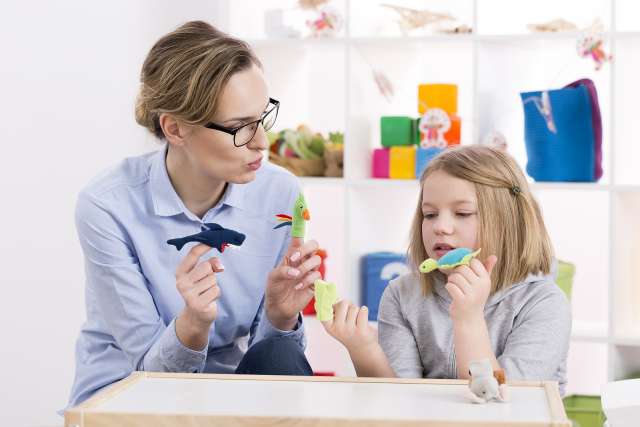Sibling Rivalry: How to Get Your Kids to Argue Less
Find out methods to help get your kids to stop the constant arguing.
We all imagined what our family would be like when our kids are growing up. Smiles and family fun, picnics at the park - maybe even matching family outfits! What none of us imagined is the constant bickering between siblings that can spoil any family dynamic.
All Kids Fight
It isn’t just you and your family. Family harmony can often be hard to come by. Sibling rivalry and fighting is normal. In fact, siblings aged 2 - 4 years experience on average 7.65 disputes per hour; conflicts between siblings aged 3 - 9 years occur at comparable rates (Kramer, Perozynski, & Chung, 1999; Perlman & Ross, 2005). No wonder you feel like it dominates your family life.
Don’t despair; there is hope! Our counselors have experience helping families just like yours getting back to a happier family dynamic! Our therapists are here to help you and your family find the best balance to get to place that feels calmer. Our therapists are dedicated to find the strategy that will work the best for your family given your circumstances. We know that every family is different and complex, so we make sure our treatment follows suit! While you’re waiting for your first appointment, here are some tried and true evidence-based techniques you can try at home right now to get your kids to stop fighting.
1. Don’t be the Judge

Oftentimes kids fight as a way of vying for your attention or to see who you will side with. Sometimes, it feels like there’s an obvious “side” to pick. However, remember that they’re testing you! Don’t let them. Don’t be their referee and decide who is wrong or right. This will only make their arguments more common. Instead, ask them to sort out their differences themselves. It can help to force them into neutral territory for this activity, such as a room you are not occupying. On top of solving these issues as they come up, this will teach your children skills to manage conflict with others. From our experience providing child therapy, our child therapists know that children’s behavior with siblings can provide some context how they act in other settings. Starting with sibling interactions can be an excellent way to help them implement this behavior in other settings.
Don’t let it come to blows!
Listen. Is each child listening to the other’s point of view? Does each child feel heard? It is okay to help make this happen. Callie Chunodkar, a child therapist at Open Arms Wellness says that "Active listening ensures that each child does not interrupt each other, and can repeat back what they think their sibling is feeling. Sometimes having a toy or object that only the person talking is holding can be helpful in guiding children to pay attention to who is talking, and what they are saying." It’s important to keep in mind your ages and preference. Use something that you can tell with resonate with both of them.
2. Be the Coach
Be the Coach. As a parent, it is your job to teach your children how to settle differences. Here is a great time to parent. Something to keep in mind is that your child may not have experience trying to solve a problem with other kids. So, there’s likely going to be some bumps and learning experiences! Our expert child therapist Stephanie Kippenberger says, “Conflict resolution is an essential social skill for children to learn because it helps them navigate through issues with siblings and in peer settings. It is a tool that they will continue to use and shape throughout the different relationships they will encounter in their life.”
Address the arguments in real time.

Rivalry outbreaks are the perfect opportunity to show them how to amicably deal with an argument. In fact, children raised with siblings are often better at working out differences because they learn to as children. Ask each kid to explain their side of the fight - not to you but to their sibling. This tactic will help build their communication skills. Feelings and emotions are complex and abstract experiences, so learning to put words to them will only help them get better at this. Ask who has an idea for a fair outcome? It always helps to have the children help decide what happens. Our child therapists know that giving children choices is crucial, as this helps them feel involved in their surroundings. Sometimes a mutual cooling off period for both parties help cooler heads prevail.
Use arguments to teach them skills.
On top of that, this is a great emotion regulation skill for them to create a habit of doing when they feel upset. Coach both children to express their feelings and needs without attacking the other. This is a perfect time to incorporate “I feel” statements. This statement can help deescalate conflict by each person owning the way they feel in the argument instead of assigning guilt to the other for “making them” feel a certain way.
Now, let’s go through some common situations that happen in sibling rivalry.
1. Fighting over a toy? Suggest setting a timer and have them choose how long each turn is. Sarah gets the first minute, but maybe Tommy gets two minutes before Sarah gets her other minute. With small kids it helps to have a clock they can see.
2. Fighting over dessert? Make sure one child splits the dessert into “fair” shares while the other child chooses first!
3. Fighting over what to watch on TV? "Perhaps now is a good time to go outside."
Start Child Therapy in St. Louis, MO

Addressing sibling rivalry can be tough, so we're here to support you. Starting child therapy in St. Louis, MO can be a great way to address and lessen sibling rivalry in your home. Our expert child therapists have experience in working with families just like yours to see the changes they desire. Our child therapists are happy to help through online therapy in Missouri or in our St. Louis based counseling practices. When you're ready to start child therapy in St. Louis, MO, follow these steps:
- Schedule an appointment with us.
- Get to know our team of excellent child therapists.
- Help your children to better manage sibling conflicts

St. Louis based LPC, Callie Chunodkar, child counselor.

Stephanie Kippenberger, LCSW, Therapist St. Louis